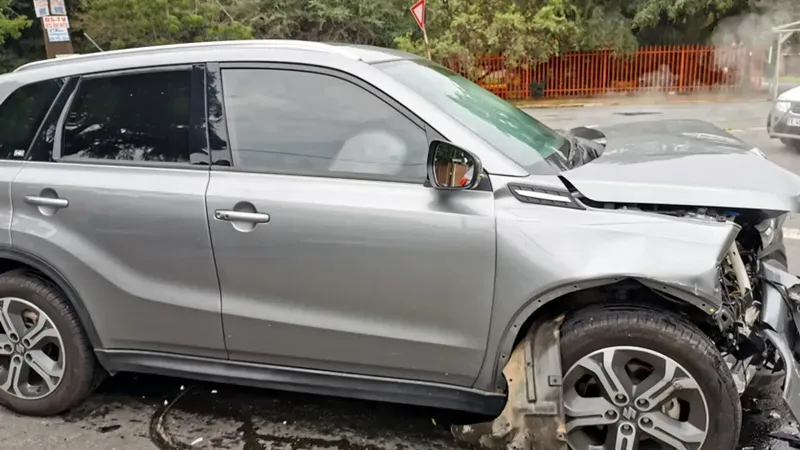There’s a new tactic used by criminals to steal cars in South Africa – here’s what you need to know
As cars have evolved with new features and tech, criminals have found a new way to use these hi-tech advancements to their advantage.
South Africa is well known for its prolific hijacking and vehicle theft numbers, with many security companies having to report on high-risk vehicles and tips to avoid the latest trends used by criminals.
Official crime statistics showed that reported carjackings were up 8% in 2022/23, recording 22,742 cases (2021/22: 20,976).
Duma Ngcobo, Chief Operations Officer at Tracker, expressed concern as the number of vehicles stolen from over 1.1 million Tracker-installed cars continues to climb yearly.
Incidents have increased by 13% from the previous year. Incidents in Gauteng have risen by more than 18%, with the largest contributors being vehicle theft and hijacking, up 22% and 15%, respectively.
According to the latest SAPS crime data, theft of vehicles is far more prevalent than carjackings, with 37,426 cases recorded in 2022/23.
From 1 January to 31 March 2023, 5,119 cars were stolen, equating to approximately 57 cars being stolen in the country every day.
New tactic
Vehicle crime is a reality in South Africa, and while you might think that having a car with the latest high-end security features protects you, this is not necessarily the case as car thieves have become increasingly tech-savvy.
According to MotorHappy, the very sensors, computers, and data aggregation systems that were created to protect cars are now being used to steal cars.
Most modern cars include an internet connection for features such as over-the-air software updates and in-cabin Wi-Fi.
This also allows the Electronic Control Modules (ECMs) to remotely manage the engine, transmission, powertrain, brakes, suspension, etc.
However, Hackers are now using this to their advantage – stealing cars by tracking the car’s credentials and data via the internet.
“It allows them to bypass security, track the exact location of the vehicle, and create a false key signal (key cloning), allowing them to easily gain access to the car,” it said.
This development in ways of stealing cars stemmed from the recently popular method of hacking a vehicle’s keyless-entry system (KES).
According to TopAuto, this method has become so popular among car thieves that Toyota created several enhanced safety upgrades specifically for vehicles in South Africa to reduce the chances of their KES being compromised.
MotorHappy said that keyless cars are often stolen through a technique known as relay hacking. This involves criminals intercepting the signal from the original key and transmitting it to a second person who is closer to the car and holding a relay box.
The relay box then sends a message to the vehicle that the key is nearby, causing it to unlock.
Key jamming is a well-known technique in South Africa. This involves intercepting the signal of the fob, which makes it impossible for the car owner to lock their car, making it easier for thieves to gain access.
How to avoid becoming a victim
According to MotorHappy, motorists can avoid becoming a victim of these new criminal tactics by considering the following:
- Use signal-blocking cases (like a Faraday pouch);
- Using a simple steering wheel lock will ensure your car stays put;
- Check the doors of your car manually so that you are sure that the doors have been locked to avoid the chances of key jamming theft;
- When at home, store your car key as far away from your car as possible to minimise the possibility of amplifying the key fob signal;
- Install an extra immobiliser or alarm;
- Regularly update your car’s security software, as most vehicle manufacturers are constantly introducing new tactics to stay one step ahead of thieves.

Want more information?
Quick Links
Latest news

Glenwood Brokers (Pty) Ltd


